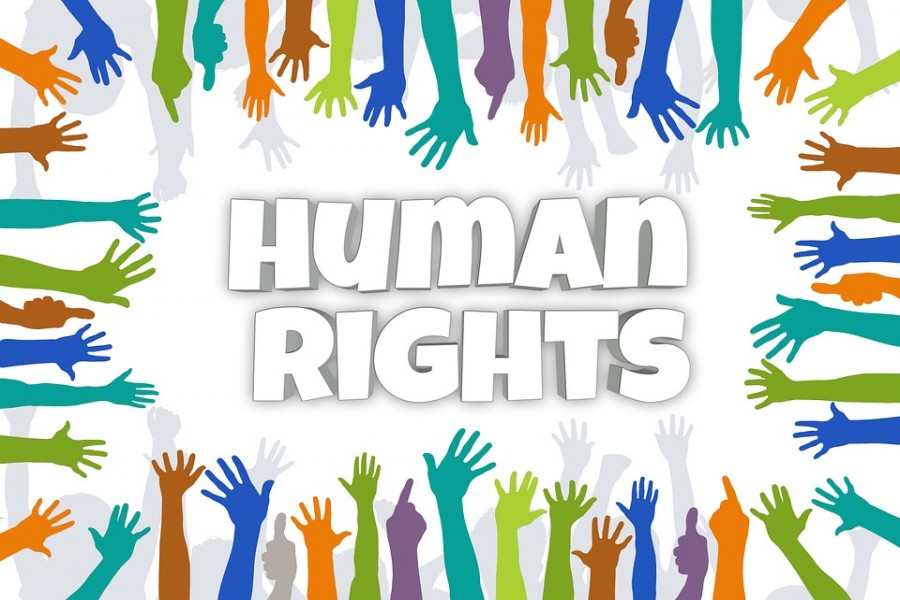No matter where you live, the simple act of buying a product can affect the human rights of someone you have never met. Business activity - producing, selling, investing, and buying - impacts the lives of billions of people worldwide. Every day we engage in some sort of business activity: We send text messages on a new phone. We go to the markets for fruits and vegetables. We buy new leather shoes, tailor new clothes, snack on seafood, and sleep on new furniture.
Imagine those products are produced by a company using child labour or forced labour. It could be workers who have little choice but to work in dangerous conditions, including being exposed to toxic chemicals that pollute local drinking water. The workers might have laboured for long hours for little or sometimes no pay. They may have been child labourers who did not go to school or were victims of human trafficking or sexual abuse. When communities protest the labour conditions and pollution, they are often threatened and sometimes attacked.
In other situations, local communities may have been displaced, without adequate compensation, or traditional farmland may have been lost or damaged by the construction of facilities providing the products and services we desire. Perhaps a product was made from ingredients planted in an area illegally deforested, replacing a rainforest once rich in biodiversity, including endangered animals, that sustained local people and helped moderate the climate.
Scenarios like this happen every day around the world, across industries, and with almost every imaginable product. They show the effect businesses can have on human rights and the environment. Every business, large or small, has a responsibility and opportunity to prevent and address human rights abuses.
The good news is businesses have an immense capacity to positively impact society and the environment by raising local wages, improving local working conditions, building trust with local communities, and operating sustainably. But who is responsible for making sure human rights are not overlooked by the drive for profits?
The UN Guiding Principles on Business and Human Rights (UNGPs), unanimously endorsed by the UN Human Rights Council 10 years ago, say the responsibility is shared. The UNGPs created a common understanding of the positive role businesses can play in promoting respect for human rights and remedying abuses in the context of business activities. The guidelines outline three pillars: (1) governments have a duty to protect human rights; (2) businesses have a responsibility to respect human rights; and (3) victims affected by business-related human rights issues should have access to remedies.
In response to the UNGPs, over the past decade many governments created National Action Plans on business and human rights and adopted legislation to counter corporate abuses and enhance accountability, including the United States. Many businesses, including some operating in Bangladesh, are strengthening corporate policies and practices on safety and labour rights, and conducting due diligence to avoid directly or inadvertently supporting human rights abuses through their operations, investments, contracts, or supply chains.
Businesses respecting human rights have a competitive advantage by mitigating operational, legal, and reputational risks. These businesses know respecting human rights is not only the right thing to do but also the smart thing to do. Some export manufacturers in Bangladesh have met international standards for monitoring and preventing abuse and child labour. They demonstrate how compliance with international principles and business standards create more opportunities for export and growth, as well as higher productivity, better health, and commitment among workers. Companies thrive and economies prosper when businesses and governments work together to ensure strong rule of law; respect for human rights and fundamental freedoms; respect for national and international labour, environmental, and technical standards; good governance; and effective and accountable institutions.
The U.S. government supports and works to advance global standards to ensure companies - and communities - benefit from conducting business responsibly and in a rights-respecting manner. U.S. companies are among the global leaders in responsible business conduct based on their commitment to promoting respect for human rights, respecting the rule of law, and strengthening local communities through long-term investments and human capital development.
We are eager to do more to improve on this record. We look forward to working with partners in Bangladesh as we begin to build back better from a global pandemic through equitable and sustainable development. Companies, including U.S. firms, should further strengthen their engagement on human rights issues and partner with governments, workers, and civil society on shared solutions. The UNGPs point us in the right direction but are not sufficient alone.
There has been progress over the last 10 years under the framework set out in the UNGPs and comparable provisions in the OECD Guidelines for Multinational Enterprises. However, there is still much work to be done to foster a world in which businesses see economic success includes respect for people and the planet. This outcome is only possible when governments are strong partners in ensuring businesses respect human rights and comply with host government legal requirements.
The U.S. government and U.S. businesses are up to the task. Promoting respect for human rights is best accomplished by working with allies and partners across the globe. The success of future efforts to advance respect for human rights by businesses in line with the UNGPs will depend upon the collaboration of government, business, and civil society. To demonstrate our commitment, on June 16, Secretary of State Blinken announced the U.S. government will soon begin the process of updating and revitalizing the United States' National Action Plan (NAP) on Responsible Business Conduct. As this remarkable nation celebrates its 50th anniversary of independence, it is a great time to work together to further advance respect for human rights by businesses in Bangladesh for the next five decades and beyond.
Earl R Miller, U.S. Ambassador to Bangladesh.
[The piece is supplied by Public Affairs Section, The Embassy of the United States, Dhaka. [email protected]]


